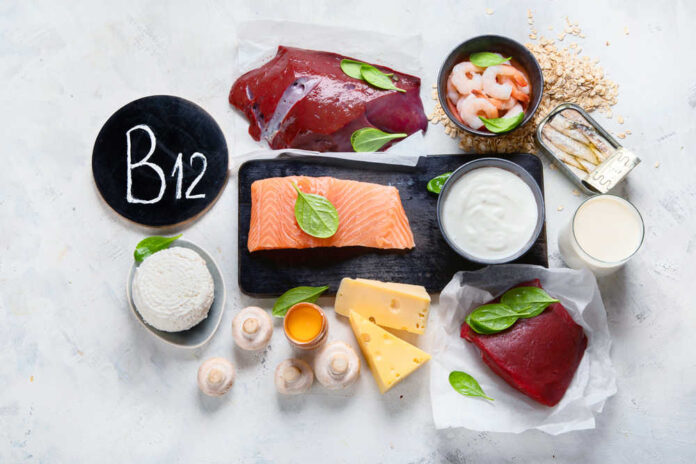
Vitamin B12, also called cobalamin, is a nutrient that plays a vital role in many of the body’s functions. It helps make DNA, nerves, and red blood cells and supports metabolism and energy production.
Vitamin B12 supplements are commonly sold and marketed alongside claims that they can improve energy levels, boost mood, and promote weight loss. However, it’s important to separate the facts from the fiction when it comes to what you do or don’t need to be taking.
FACT: B12 is an Essential Vitamin
Your body does not produce B12, but it is needed for many essential functions. Without B12, the body cannot properly make DNA or red blood cells, leading to nerve damage, mental health disorders, fatigue, osteoporosis, and digestive problems.
FICTION: Everyone Needs a B12 Supplement
While B12 is an essential vitamin, that doesn’t mean everyone needs to take a supplement. Most people get enough B12 from their diet.
B12 can be found in animal products like meat, poultry, fish, eggs, and dairy. It is also commonly added to fortified foods like bread, cereals, and grains.
FACT: B12 Supplements Won’t Help You Much Unless You’re Deficient
B12 supplements can be helpful for people who do not have enough B12-containing foods in their diet or for people who have a condition that limits their ability to absorb B12 from food.
But, if you’re not deficient in B12, taking a supplement probably won’t offer any benefits.
Claims are often made that B12 supplements can “boost your energy,” “help you lose weight,” or “improve your mood.” Low levels of B12 can lead to fatigue and depression, in which case supplements may help. But if your B12 is already at normal levels, it’s improbable that excess amounts through supplementation will have any noticeable effect.
FICTION: You Need To Eat Meat To Get B12
B12 supplements are often marketed to vegetarians and vegans who claim they need to take supplements because they’re not getting enough B12 from their diet. While it is true that plant-based foods do not contain B12, that doesn’t mean that you can’t get enough without eating meat.
Many plant-based foods are fortified with B12, such as cereals, grains, and non-dairy milk. You can also find B12 in some nutritional yeast products.
However, if you don’t eat meat or animal products, it’s probably a good idea to get checked by your doctor to ensure that you’re not deficient in B12 and to consider taking a supplement if needed.
FACT: You Might Need More B12 As You Age
In addition to vegans and vegetarians, another group of people who are at risk for B12 deficiency is older adults, and That’s because as we age, our bodies become less efficient at absorbing B12 from food.
If you’re over 50, it’s a good idea to get your B12 levels tested by your doctor. If you are deficient, you may need to take an oral supplement or get injections of B12.
FICTION: B12 Supplements Are Better Than Food Sources
While supplements can be a helpful way to get enough B12 if you’re deficient, it’s important to remember that food sources are nearly always better than supplements.
If you are eating a healthy and varied diet, you’re probably getting all the B12 you need. However, if you cannot get enough B12 from diet alone, your doctor may recommend supplementation. Talk to your doctor if you are concerned about your diet or vitamin levels.






















